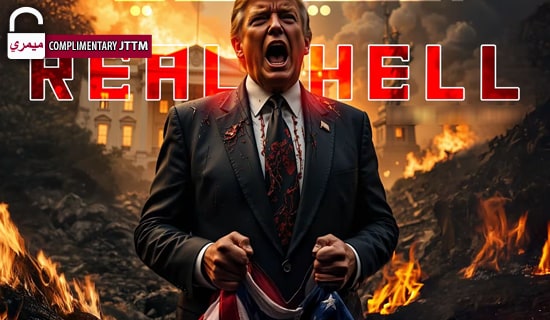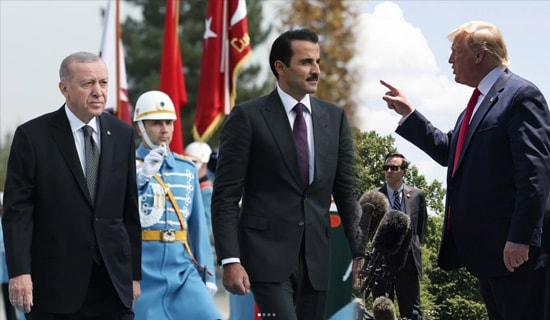On July 8, 2016, Burhan Wani, a terrorist commander of the Pakistan-backed jihadist organization Hizbul Mujahideen, which operates from its base in Pakistani-occupied Kashmir, was killed by Indian security forces. Last year, Wani and a group of Kashmiri youths took up arms and posted a video on social media.[1] Wani's killing lead to mass protests against India in parts of the Kashmir Valley, during which dozens of people were killed.
According to a report in Roznama Ummat on July 16, the previous day, Pakistani Prime Minister Nawaz Sharif called Burhan Wani a martyr and a "soldier of freedom" and declared July 19 a "Black Day" as a mark of protest in Pakistan in support of the people of Kashmir. In 1947-48, the newly-created Pakistan had sent jihadi tribesman into Kashmir to occupy the state, who were seen as invaders by the locals that fought against them.
A ceasefire line came into being in Jammu & Kashmir, which was then an autonomous region, after the Indian military intervened following the signing of an Instrument of Accession with India by Maharaja Hari Singh, the Hindu king of Jammu & Kashmir. Ever since, a part of Jammu & Kashmir remains occupied by Pakistan. Pakistan has also continued its policy of training and sending jihadis into Kashmir to fight against India, much like it does in Afghanistan.
In an editorial titled "Pakistan-India relations at a dangerous turn," Roznama Jang ("War Daily"), an Urdu-language, mass-selling newspaper in Pakistan, reflected on the emerging situation in Kashmir and how it threatens regional peace.

Excerpts from the editorial are below:
"Pakistan has always been stressing the need for talks with India to resolve the Kashmir issue as per the UN resolutions [which require Pakistan to vacate occupied Kashmir as a necessary first step], whereas the government in New Delhi has been continuously dragging its feet on this matter... But in [Indian] occupied Kashmir, the new wave of freedom and the indiscriminate use of military force to crush it, especially to achieve [India's] negative objectives in the region - all of India's actions [there] in light of [Pakistani] Defense Minister Khwaja Muhammad Asif's rejection of the probability of talks with India, or Track II or III diplomacy, are not incomprehensible.
"Talking with journalists after the meeting of the [Pakistan] Senate's Defense Committee on Monday [July 25], he said that no types of talks with India are underway at this time, nor is there a possibility of these in near future. Instead, [he said,] we have decided that we will raise the issue of Kashmir in international forums, including the United Nations and the OIC [Organization of Islamic Cooperation]. The strategy the defense minister has indicated is exactly in accordance with the wishes of the Pakistani people.
"The brutal killing of mujahid commander Burhan Wani by the Indian military; the martyrdom of more than 50 innocent Kashmiris during the upheaval in the entire [Kashmir] valley against it for the past two weeks; the continual strikes despite a curfew and sloganeering by the protesters against India and in favor of Pakistan; the hoisting of the Pakistani flag on houses; and the arrests of [secessionist-Islamist] Hurriyat leaders including Syed Ali Geelani and Mirwaiz Umer Farooq; are all indications that India has lost the war against Kashmiri people. Despite this, it is still parroting the line that [the state of] Jammu & Kashmir is an integral part of [India].

Burhan Wani (right) was killed on July 8
"On a visit of Srinagar [the summer capital of Jammu & Kashmir], Indian Home Minister Rajnath Singh has once again accused Pakistan of provoking Kashmiri youths to take up guns. In other words, India is not ready to give the right to self-determination to Kashmiris as per the [UN] Security Council resolutions despite several wars and seven decades having passed. Moreover, in order to stoke terrorism inside Pakistan, it has established a web of spies on the Pakistan-Afghanistan border and is mindlessly aiding terrorists with money and weapons. The arrest of Indian spy Kulbhushan Yadav in [the Pakistani province of] Baluchistan and his disclosures before the investigating agencies has revealed this reality.
"To escape its impact, India has decided to change its diplomatic personnel in Pakistan and has told its diplomats to send their wives and children immediately from Islamabad to New Delhi. According to [political] commentators, in the next stage it can also recall its diplomatic personnel [from the High Commission in Islamabad]. Generally, a country undertakes such steps when circumstances are heading in the direction of war while the general situation at this moment is not such. From this [step], it is not difficult to guess that the Indian institutions [may be preparing for war].
"In these circumstances, it is extremely necessary to make the international community aware of the Indian aims in terms of the Kashmir situation. One cannot reject the reality that problems are not resolved by wars and in the current era one must not even think about it. But India's track record with regard to Kashmir is very bad. It is a big country in the region. It should keep in mind not only regional, but also international peace and resolve the issue together with Pakistan as per the Security Council resolutions, instead of firing bullets on Kashmiri Muslims, and establish a situation of peace, instead of war. However, the Indian home minister's statement in Srinagar that first the circumstances [in Kashmir] will become normal, and only then will it be decided whether or not to hold talks is extremely laughable..."
Source: Roznama Jang (Pakistan), July 27, 2016.
Endnote:
[1] See MEMRI JTTM Report, Report In Indian Daily: 'Burhan Wani - The New Face Of Kashmiri Militancy In The Virtual World, August 24, 2015.




.jpg)